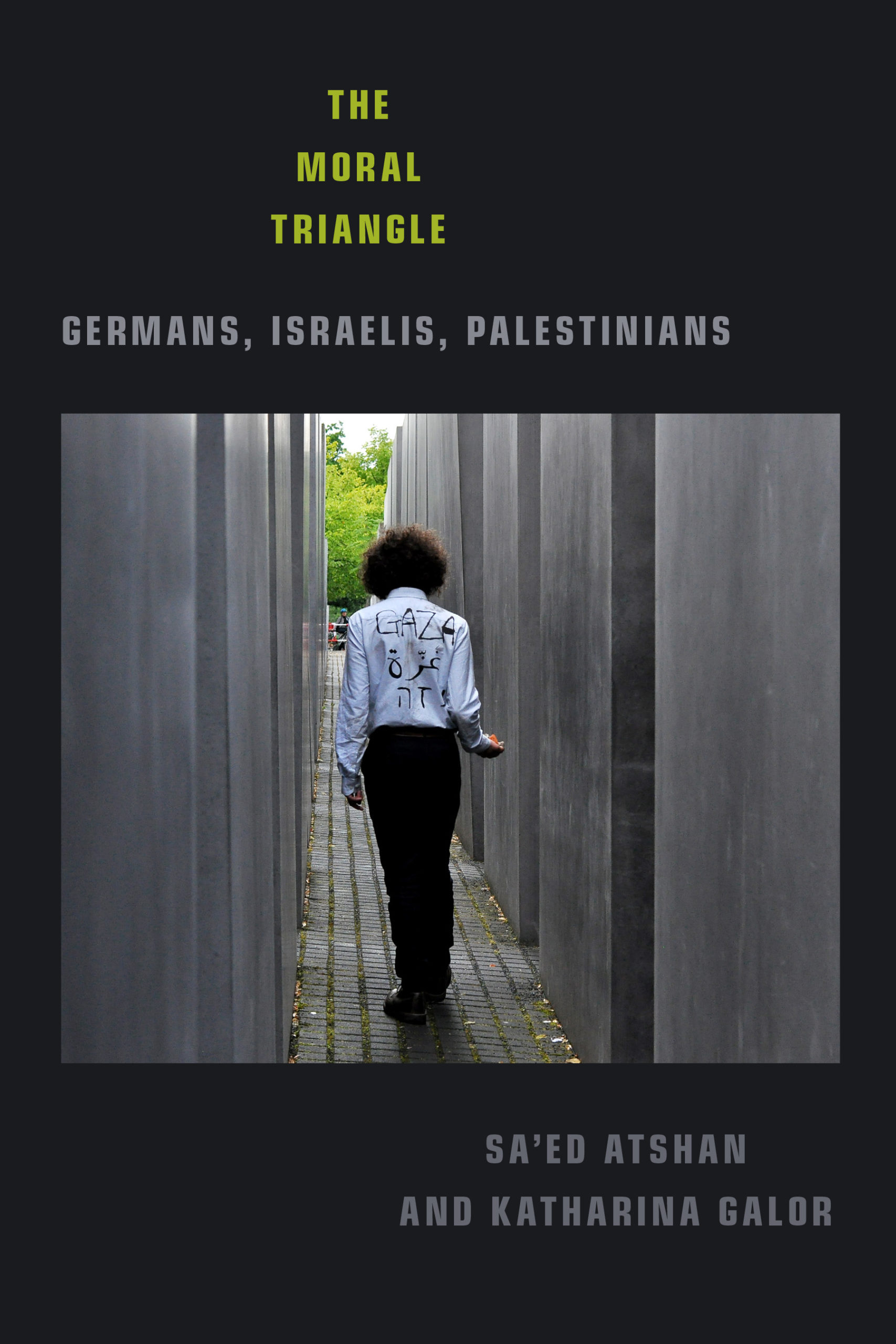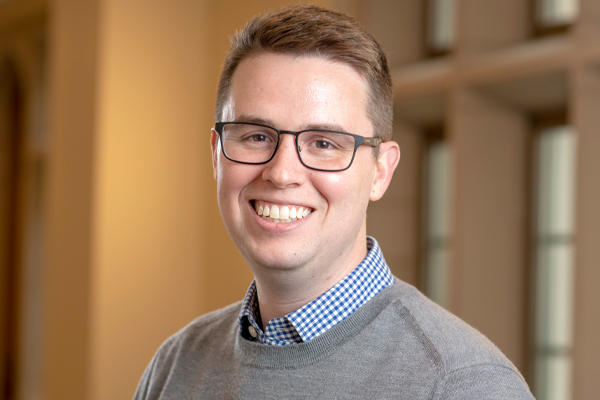 In The Moral Triangle: Germans, Israelis, and Palestinians, Sa’ed Atshan and Katharina Galor explore how Germans, Israelis, and Palestinians living in Berlin contend with violences of the past and present—most notably the Holocaust, the Nakba, and the ongoing occupation of Palestinians in Israel—in their moral and political lives. In rich ethnographic detail, the authors recount how interviewees from each of these groups understand their relationship to their own communities and to the others in this moral triangle. What readers will discern in these pages is that the historical traumas experienced by one group can occlude the realities of violence and oppression in another. This is most clearly on display in how Germans, even on the radical left, are unable to acknowledge the oppression of Palestinians by the Israeli state. (Ironically, many Israelis living in Berlin are to the left of the German left on this matter.) For many Berliners, offering unflinching support for the State of Israel even when it commits human rights violations is a way to redeem previous generations’ responsibility for the Holocaust. This comes at the expense of the Palestinian people, however, who were not responsible for the Shoah and whose experience of the Nakba is ongoing. The equation of Jewish identity with the State of Israel, is of course, fallacious and ideological. And yet, it remains a potent force in German politics and the country’s social grappling with its Nazi past. It has even led to Jews who speak out against the State of Israel in Germany being labelled antisemitic by non-Jews. Further, it leads Palestinians living in Berlin to avoid speaking out against the actions of Israel for fear of being further marginalized via the label of antisemitism.
In The Moral Triangle: Germans, Israelis, and Palestinians, Sa’ed Atshan and Katharina Galor explore how Germans, Israelis, and Palestinians living in Berlin contend with violences of the past and present—most notably the Holocaust, the Nakba, and the ongoing occupation of Palestinians in Israel—in their moral and political lives. In rich ethnographic detail, the authors recount how interviewees from each of these groups understand their relationship to their own communities and to the others in this moral triangle. What readers will discern in these pages is that the historical traumas experienced by one group can occlude the realities of violence and oppression in another. This is most clearly on display in how Germans, even on the radical left, are unable to acknowledge the oppression of Palestinians by the Israeli state. (Ironically, many Israelis living in Berlin are to the left of the German left on this matter.) For many Berliners, offering unflinching support for the State of Israel even when it commits human rights violations is a way to redeem previous generations’ responsibility for the Holocaust. This comes at the expense of the Palestinian people, however, who were not responsible for the Shoah and whose experience of the Nakba is ongoing. The equation of Jewish identity with the State of Israel, is of course, fallacious and ideological. And yet, it remains a potent force in German politics and the country’s social grappling with its Nazi past. It has even led to Jews who speak out against the State of Israel in Germany being labelled antisemitic by non-Jews. Further, it leads Palestinians living in Berlin to avoid speaking out against the actions of Israel for fear of being further marginalized via the label of antisemitism.
Perhaps the greatest virtue of Atshan and Galor’s book is that it forces us to confront the moral realities of people on the ground in Berlin. As the authors note early on, their interviewees range from a psychoanalyst, to a janitor, to a teacher, to a small business owner (see page 6 for a full list of the professions of the interviewees). This range of subjects provides us a glimpse into the complex moral lives of people without the distance that academic analysis of these issues often affords. The result is a moral triangle that is threaded together by an intersectional web. Here identities sometimes overlap where we might expect them to depart (think here of the critiques of the State of Israel by both Israelis and Palestinians in Berlin) and depart where we might expect them to conjoin (think here of the inability to acknowledge the Nakba among German Berliners). The result is an empirical study that invites us to acknowledge the challenges that the lived realities of humans on the ground present to our normative positions.
The essays collected in this symposium grapple with the intersections and divergences among these groups, and their ramifications both in and beyond Germany. Amos Goldberg explores what he calls the “split in current German liberal identity.” This split, he contends, is between a liberal state that attracts migrants like those from Israel and Palestine and a state that sanctions any criticisms of the State of Israel. He argues that this split is reflective of a more general one between anti-/post-colonialism and the story of the Holocaust, where the former is focused on current oppression and the latter on memory. He concludes by noting that, unfortunately, the current oppression of Palestinians in Israel/Palestine has eroded the likelihood of bringing these perspectives together in a way that might lead to peace. Sultan Doughan, meanwhile, reflects on how the category of perpetrator has come to define what it means to be a German citizen. This category, Doughan notes, is bound up with a Protestant-inflected way of conceptualizing moral responsibility that continues to resonate, even in “secular” Berlin.
In their essay, Hannah Tzuberi and Nahed Samour contend that the German state’s “anti-antisemitism,” rather than combatting the logic of antisemitism actually reinforces it. This is because it continues to rely on the image of the Jew as vulnerable and in need of protection. Without this image, the German state’s image of itself as morally righteous could not exist. Thus, paradoxically, the Jew—and in the German political/moral imagination, the (always Jewish) Israeli—must remain a victim in order for the German state to preserve itself, with tragic results for those who suffer under oppression from Israeli state violence. The figure of the Palestinian here emerges as the crucial prism through which the multiple layers of legitimatized, moral violence in Germany must be recognized. Finally, Sabine von Mering puts her own experiences as a non-Jewish and non-Palestinian German into conversation with Atshan’s and Galor’s findings. By interweaving her own experiences of growing up as a Lutheran in Germany and of German-Jewish dialogues that took place at Brandeis in the late 1990s, von Mering shows the possibility of a German standing in solidarity with Israelis and Palestinians.
These essays demonstrate that oppression is not static and that how we remember past oppressive violence cannot be disentangled from current injustices. An even wider lens on this situation reminds us that the forces of secularism and modernity continue to remain potent drivers of political and social strife. Concepts like the nation, religion, or the secular did not appear out of thin air. Rather they are the products of human history. As such, reckoning with their violences, and potentialities, is a collective human responsibility, one with which The Moral Triangle invites us to more fully grapple.

